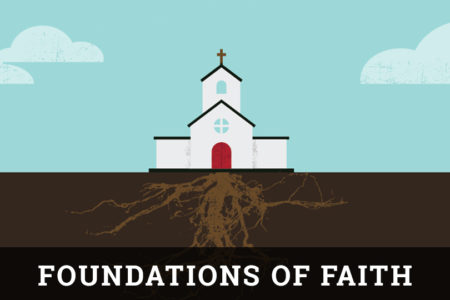Are Christian Zionists Bad News for Jewry?
Jewish people are being warned to watch out for Christian Zionists by “Bracing for the Apocalypse.” In an article published by Forward newspaper (February 6, 1998), Jonathan Mahler produced a classic exercise in manipulative misinformation. In short, his premise is that Christians who espouse Zionist ideals pose a mortal danger to Jews who opt not to become believers in Jesus.
Mahler refers to Boston University history professor Richard Landes, who, with a small band of colleagues at the college’s Center for Millennial Studies, is documenting the growing religious fervor attending the run up to the year 2000. “And if history is any kind of judge, warns Mr. Landes, the outpouring of Christian support for the State of Israel has a definite expiration date.” Landes further frets about the growing alliance between elements within the evangelical Christian and Jewish communities. “Right now it’s springtime,” he says, “but we are really playing with fire here.”
Justification for pushing the panic button is drawn in part from the conduct of Martin Luther during the early days of the Protestant Reformation. Initially, Luther felt that Jewish people would flock to his justification-by-faith-alone break with a system that had scorned Jews as “Christ killers” through the centuries. When this did not occur, the reformer, who had only partially turned from the old ways, began to attack Jews with a vengeance.
“Luther’s sudden change of heart,” said Mr. Landes, “may provide a useful—not to mention, ominous—change of directional clue to the future of Christian Zionism.”
Thus the attempt to yoke Luther with modern evangelicals and, in the process, scare the wits out of Jews who are tending to welcome a relationship with Christians friendly to Israel. For the learned professors at Boston University, this must have been quite a stretch. For starters, there are scant justifiable comparisons between Martin Luther and evangelical Christians of today. Evangelicals do not carry a residual strain of anti-Semitism in their collective soul. Beyond this, I know of no evangelical who would call Martin Luther a Christian Zionist. He simply does not qualify.
Furthermore, these gentlemen were not only in error when they compared Luther to modern-day Christian Zionists, but they missed the mark completely when assessing evangelical eschatology.
According to Mahler, “The emerging alliance between evangelical Christians and some (Jewish) Zionists is raising some prickly questions. After all, for these Christians, Zionism is a necessary act in the unfolding drama of God’s redemption. In the final scene of that drama, recall, Jews are either converted to Christianity or perish during the battle of Armageddon.”
Yes, evangelical theology does see Israel in the land as an integral part of end-time events. (Incidentally, the overwhelming number of biblical texts supporting this conclusion are found in the writings of the Jewish prophets.) Evangelicals do not, however, teach that “Jews will be converted to Christianity or perish during the battle of Armageddon.” Jeremiah the prophet referred to a future time of trial for Israel by saying, “Alas! for that day is great, so that none is like it; it is even the time of Jacob’s trouble, but he shall be saved out of it” (Jer. 30:7). The emphasis on Israel’s being “saved out of it” relates to the coming reconciliation—a national day of redemption that is anticipated in both Testaments of the Bible. To etch a scene in which Christians are associated with images casting Jews into the Armageddon inferno seems contrived to raise old specters of pogroms, inquisition, and Holocaust. But there is something else here, something that thinking Jews and evangelical Christians will do well to consider carefully.
What actually nettles people like Jonathan Mahler and Richard Landes is the emergence of a new reality, one in which some evangelical Christians and Jews have banded together to form an alliance dedicated to a single purpose: the survival of Israel. The fact that this alliance is now a force in the national life of Israel and the United States is unsettling to both Jews and Gentiles positioned politically and religiously to the left of center. Their not-too-subtle tirade objecting to what transpired in Washington, DC, last January, when Prime Minister Netanyahu came to town for talks with President Clinton, makes the case.
Mahler tartly observes, “If there were ever any lingering doubts about the seriousness of the Christian-Zionist alliance, they were squashed last month when Prime Minister Netanyahu arrived at Dulles Airport and made a beeline for the Mayflower Hotel, just in time for a rally sponsored by United Voices for Israel [Voices United for Israel]…”
Awaiting the Prime Minister following his “beeline to the Mayflower Hotel” that afternoon were well over a thousand evangelical Christians and Jews. The ratio of attendees—an important fact not reported in the media—was approximately equally proportioned between Jews and Christians. Voices United for Israel—an alliance of 200 Jewish and Christian organizations representing some 40 million Americans—had, within a few days, rallied the group to come to Washington to encourage both the Prime Minister and President Clinton to press for a truly equitable peace between Israel and the Palestinians. The keynote from all the speakers was for reciprocity in responsibly implementing agreements, and security for Israel and its people. If there were sinister motives afloat, it was left to second-guess artists like those quoted above to concoct them through after-the-fact analysis.
There is a sad note in all of this. We live in a time of traumatizing cultural revolution that threatens the Judeo-Christian foundation upon which America and Western democracies were built. In such a climate, the fact that conservative-minded Jewish people and evangelical Christians find common cause in the defense of fundamental commitments should come as no surprise.
We might add that this new fusing of desire to unite on behalf of Israel and Jewry—Christian Zionism, if you will—is not a Johnny-come-lately explosion of millennial fervor. In former days, when there was no Jewish/evangelical alliance, there were stalwart Christians who stood firmly for the right of Jews to live securely in the land of their fathers. They did it because they believed that is what the Bible instructed them to do. That their number is growing today is something both Jews and Christians should applaud. It will be a sad note indeed if there are those on either side of the line who continue to foment suspicion, mistrust, and ill will. It is a new day; let’s take advantage of it.







